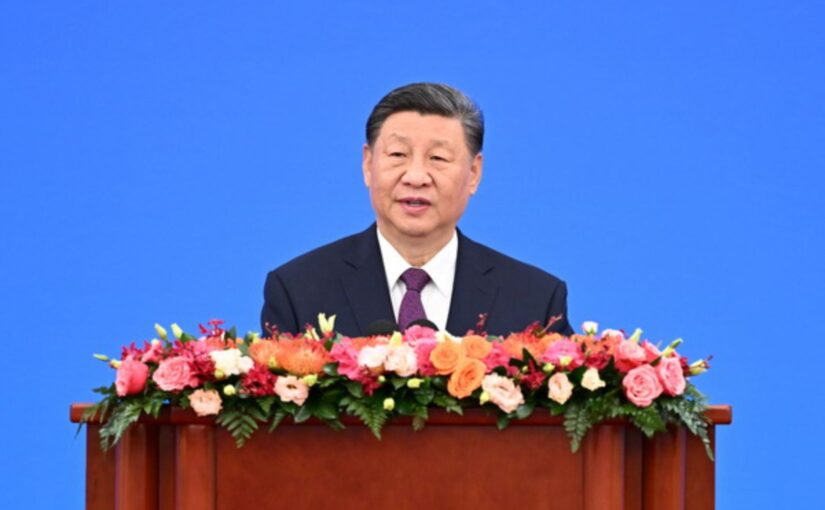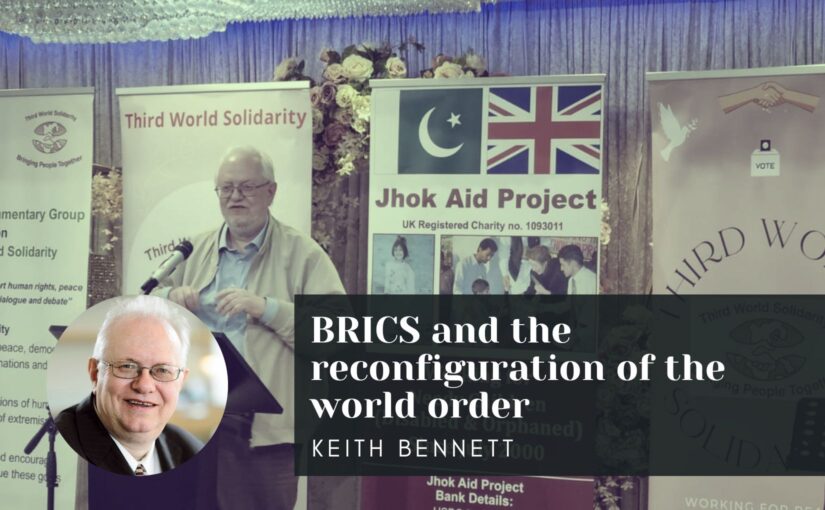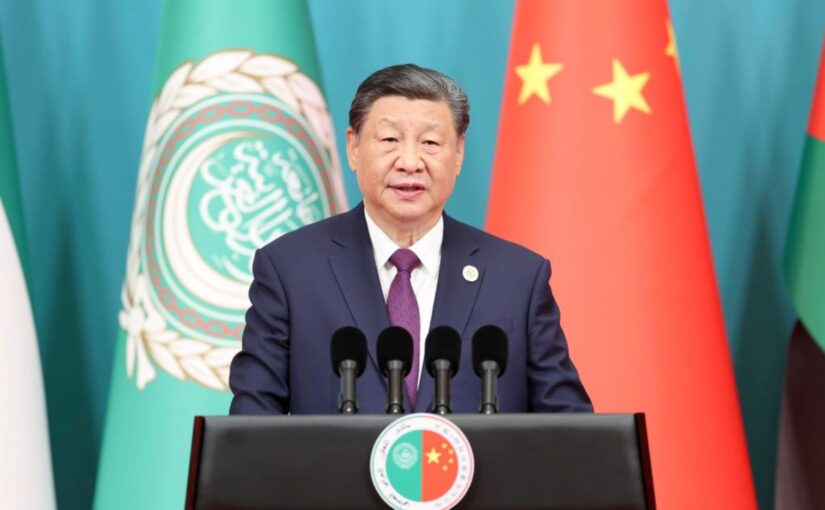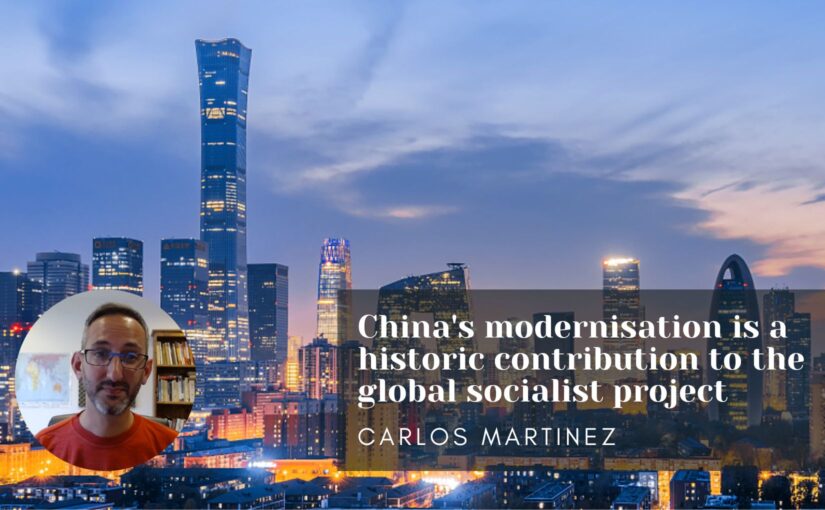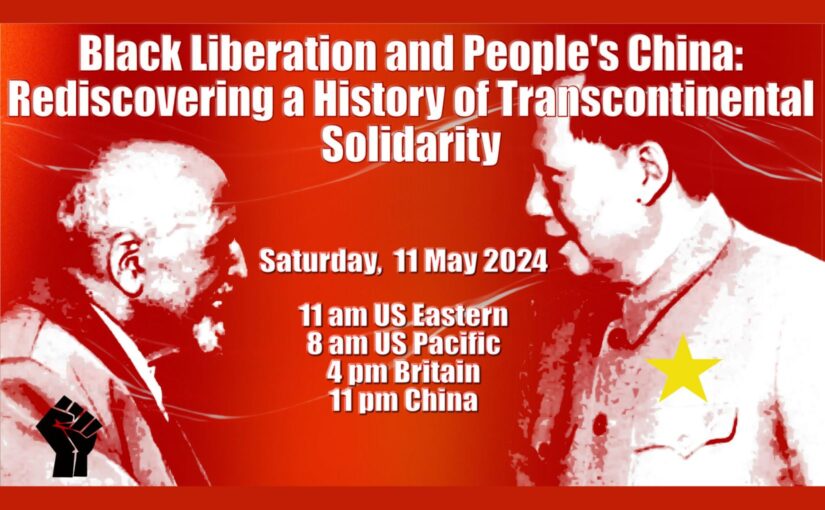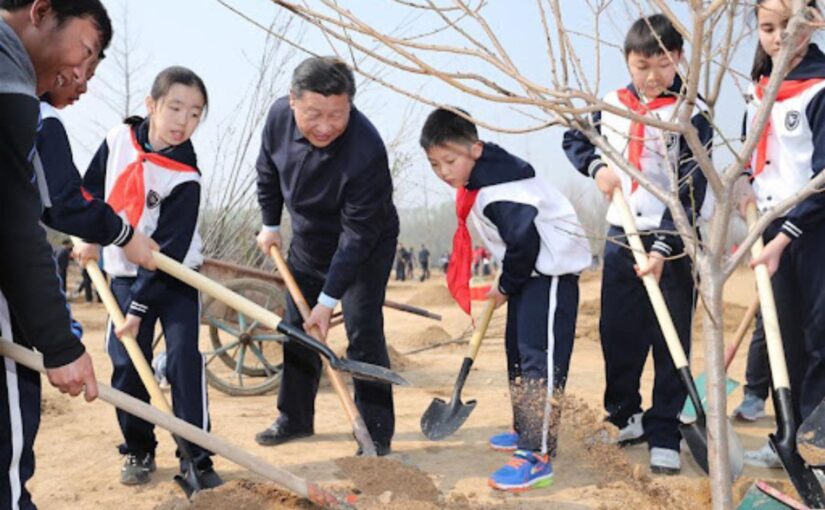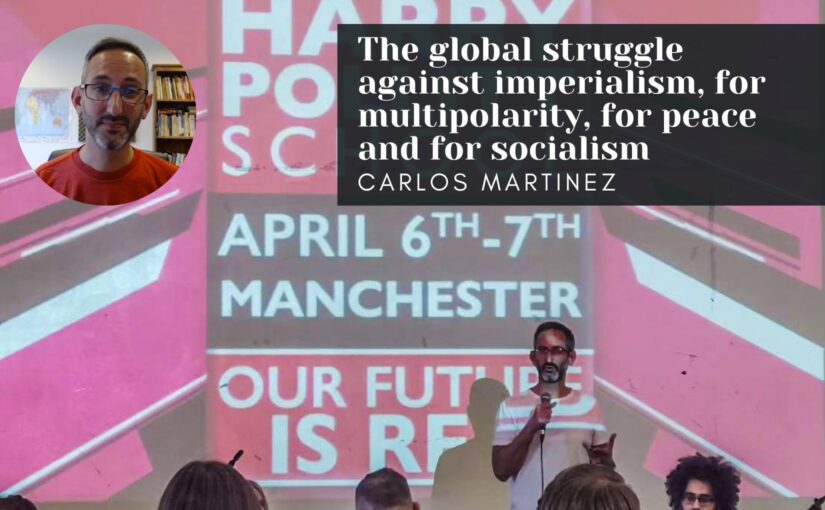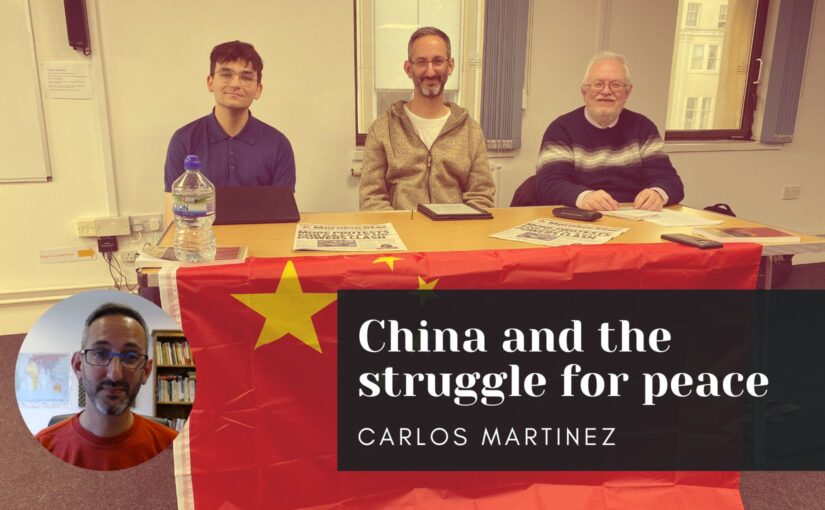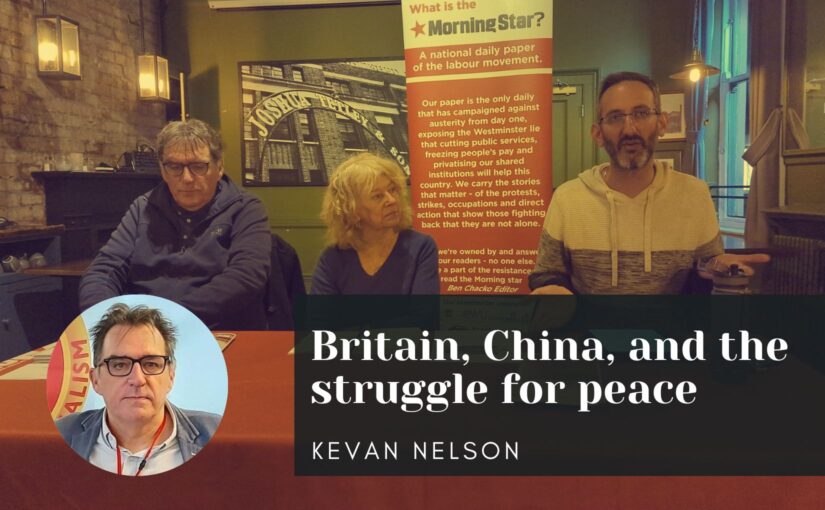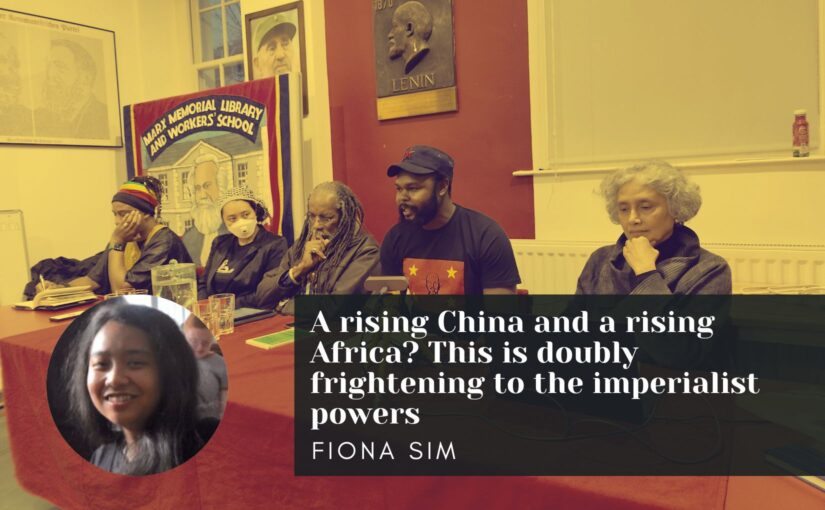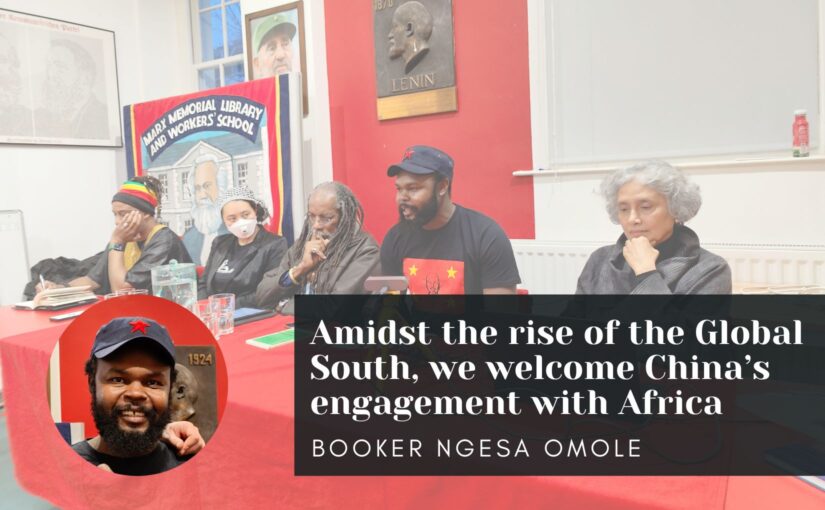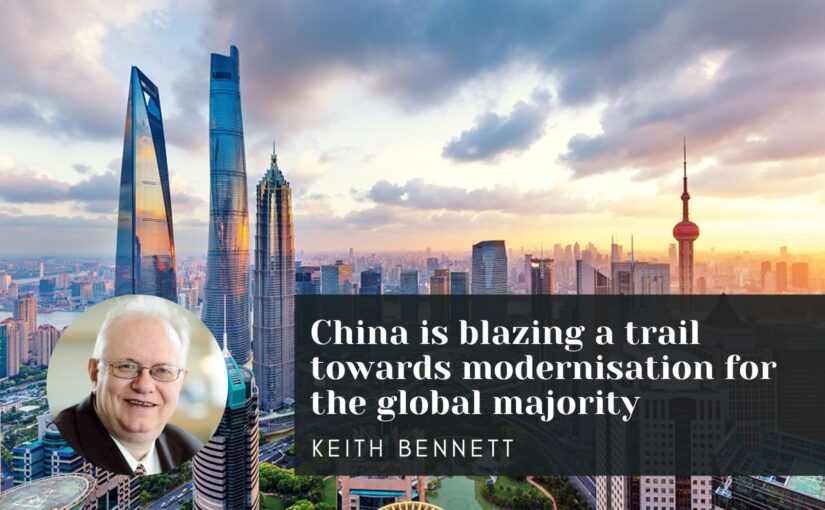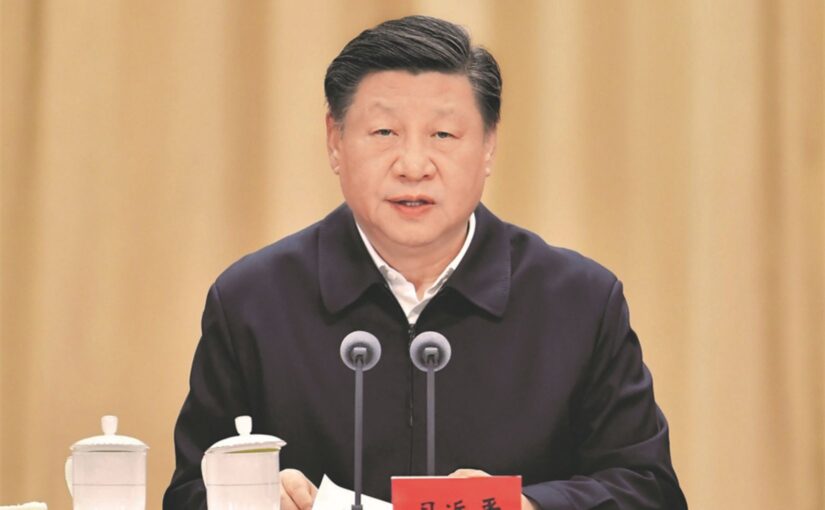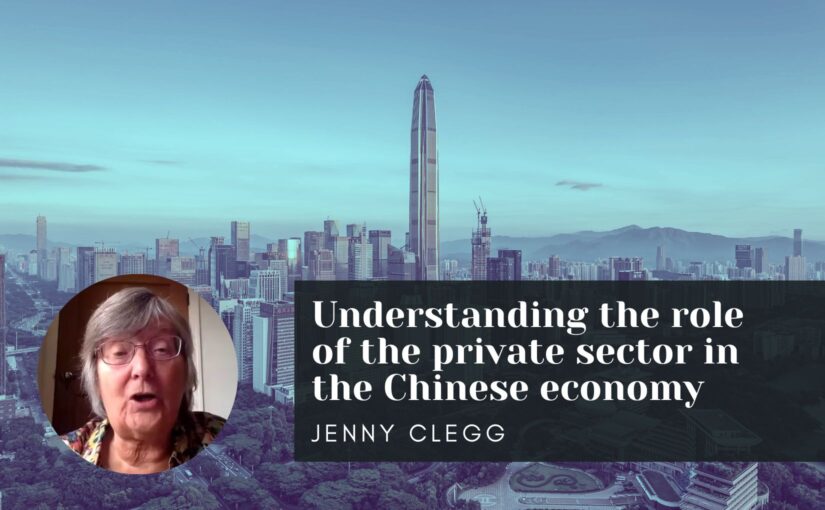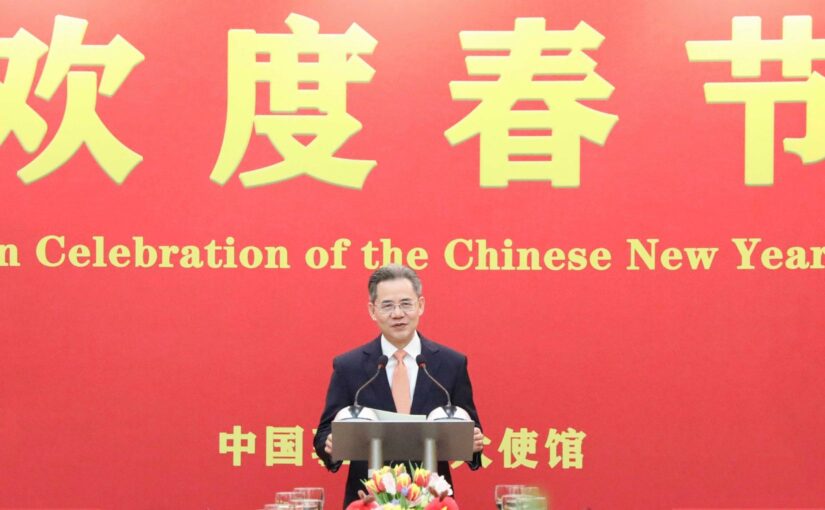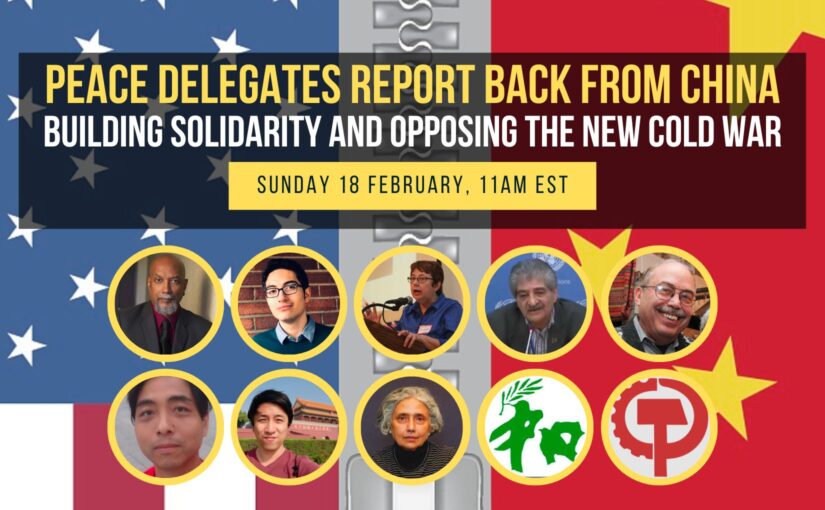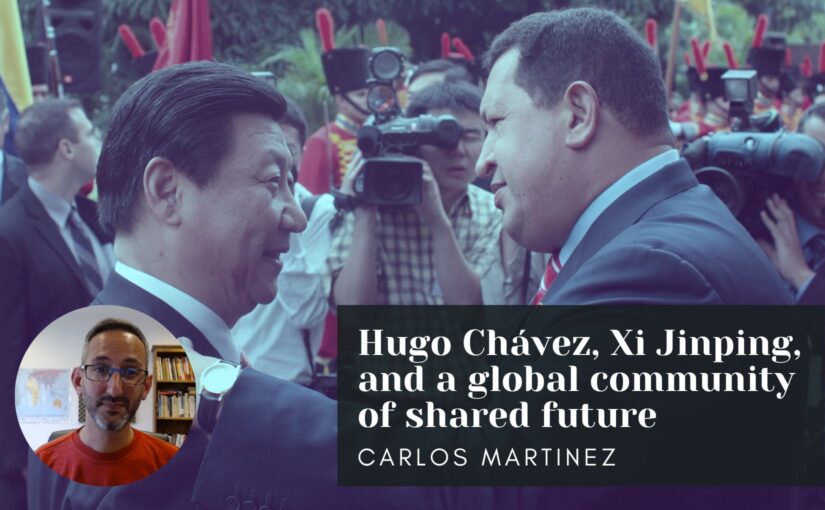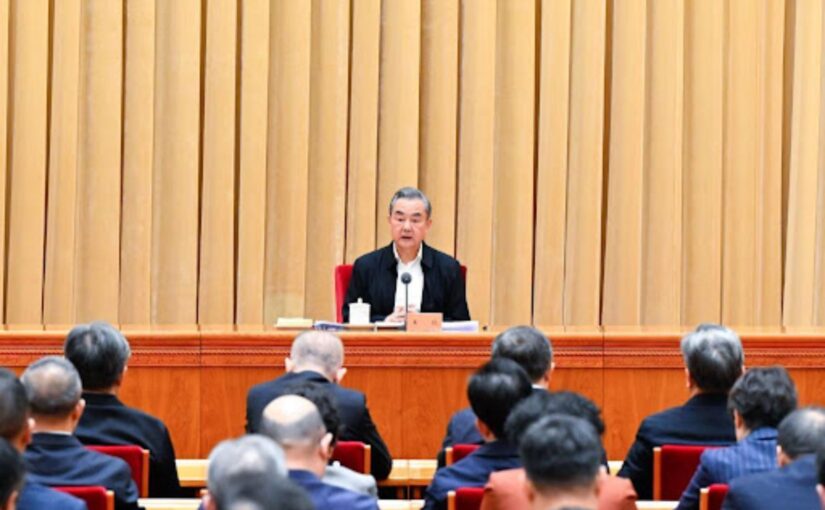The following text is based on a talk given by Friends of Socialist China co-editor Carlos Martinez at the Young Communist League of Britain’s Harry Pollitt School, held on 6-7 April 2024 in Manchester.
Participating in a panel Towards A Multipolar World: The End of U.S. Hegemony – alongside YCL International Officer Berkan Çelebi, Fiona Edwards of No Cold War Britain, and comrades from the Communist Party of China, Leninist Komsomol of the Russian Federation and Student Federation of India, Carlos focuses on the meaning of the term multipolarity, and particularly on distinguishing it from inter-imperialist rivalry.
He notes that, while some people point to the period leading up to World War 1 as being ‘multipolar’, the modern idea of multipolarity “isn’t simply about readjustments in the relations between the major powers, but it also includes the rise of the Global South – the increasing influence of China, of India, of Brazil, of regional organisations such as the African Union, ASEAN and Shanghai Cooperation Organisation, as well as international organisations such as the G77 and the Non-Aligned Movement.”
Carlos continues:
Because this process of multipolarisation incorporates the rise of the Global South, and is being led to a significant degree by a socialist country, by which I mean China, it’s much more than just a change in cast; it’s a fundamental, a qualitative change.
He addresses the concern held by some on the left that, with the decline of the US, China will simply become the new imperialist power, noting that such an idea has no theoretical basis, and an observation of today’s reality and the state of international relations amply rebuts it.
Carlos concludes:
The most important dynamic of global politics today is this struggle between, on the one hand, an emerging multipolarity, and on the other, the attempts by the imperialists – led by the US – to preserve their hegemony. Clearly we can’t stand on the sidelines in this fight. Clearly we must do whatever we can in the struggle against imperialism, for multipolarity, for peace and for socialism. That global struggle is our struggle.
I’d like to use my few minutes today to go into a bit of depth on the subject of multipolarity.
This is a word that we hear increasingly often, but in my view it’s not something that’s particularly well understood.
In particular, in some parts of the left, multipolarity is thought to be a sort of synonym for inter-imperialist rivalry.
People understand that there’s a shift from a unipolar situation – the post-Soviet ‘end of history’ of the 1990s – and that increasingly there are multiple centres of power. Which of course is part of the definition of multipolarity.
But they point out: the world situation in 1914 was also ‘multipolar’. The US was a power, Britain was a power, France, Germany, Japan, Russia.
But there was nothing progressive or peaceful about that version of multipolarity; in fact it was precisely that intense, violent rivalry between competing imperialist powers that led to the terrible death and destruction of World War 1.
So what do we mean when we talk about multipolarity?
Jenny Clegg, who’s written an excellent book on the subject, called China’s Global Strategy: Towards a Multipolar World, defines it as a situation where there are “multiple centres of power, all with a certain capacity to influence world affairs, shaping a negotiated order.”
She adds a very important point that multipolarity isn’t simply about readjustments in the relations between the major powers, but it also includes the rise of the Global South – the increasing influence of China, of India, of Brazil, of regional organisations such as the African Union, ASEAN and Shanghai Cooperation Organisation, as well as international organisations such as the G77 and the Non-Aligned Movement.
Jenny’s book was published in 2009. Since that time BRICS has become a very important body in the push towards multipolarisation, as has the Community of Latin American and Caribbean States (CELAC).
With multiple centres of power, you shift away from a situation where one country can impose its will on the others. Which means specifically, in our current context, that you undermine the US-led imperialist world system. You deprive the imperialist bloc of its power to determine the fate of the rest of the world.
This is of course profoundly important and welcome.
The US-led imperialist world system is what’s driving the genocide taking place this very moment in Gaza.
The US’s insistence on upholding and expanding its hegemony in Europe is what’s driving the conflict in Ukraine.
The genocidal war on, and occupation of, Iraq – in which an estimated one million civilians lost their lives, and which set the country’s development back by decades – took place in that same context.
The 20-year war on Afghanistan, which has brought relentless misery to that country.
NATO’s war of regime change against Libya, which transformed a prosperous and thriving country – the country with the highest human development index in Africa – into a failed state.
NATO’s war to destroy Yugoslavia.
The Western-backed Saudi war against Yemen, creating what until six months ago was the worst humanitarian disaster the world had witnessed this century.
Suffocating sanctions against Cuba, Nicaragua, Venezuela, Iran, Syria, the DPRK, Zimbabwe and other countries.
Structural adjustment programs, economic coercion, loans tied to privatisation and deregulation, taking advantage of the dollar’s role in the global economy in order to threaten, coerce and blackmail.
Such is the reality of the US-led imperialist world system. Such is the so-called “rules-based international order” that Biden and his ilk talk so often about.
Undermining and overcoming that situation clearly represents a historic victory for the peoples suffering under it.
And because this process of multipolarisation incorporates the rise of the Global South, and is being led to a significant degree by a socialist country, by which I mean China, it’s much more than just a change in cast; it’s a fundamental, a qualitative change.
It’s not Spanish and Portuguese domination making way for Dutch domination.
It’s not Dutch domination making way for British domination.
It’s not British domination making way for US domination.
It’s an end to the whole system of domination and hegemony. It’s an end to the dynamic whereby a small group of countries sets itself up as ‘rule makers’ and the remaining countries are ‘rule takers’.
It’s an end to the 500-year-old division of the world into oppressor and oppressed nations.
What about China?
Some people seem to worry that, with the decline of the US and the rise of China, China itself could emerge as a new imperialist power.
This is an idea that simply doesn’t hold up, at either a theoretical or practical level.
As of a century ago, the division of the world among the great powers is complete – as observed by Lenin in his famous pamphlet on imperialism. The only way for a new imperialist power to emerge is to displace existing ones, typically by means of war. But China’s record is remarkably peaceful.
Whereas the US maintains over 800 overseas military bases, spends over a trillion dollars annually on its military, and is in a state of more-or-less permanent war, China’s military hasn’t dropped a bomb in over four decades.
China’s per-capita military spending is around one-twentieth of that of the US, in spite of the fact that China is strategically far more vulnerable, and faces a long-running and escalating campaign of containment and encirclement.
China has peaceful development literally written into its constitution. China’s a nuclear power, but it maintains a strictly defensive nuclear posture: it has around 300 nuclear warheads, compared to the US’s 5,500, and it has had a policy of no-first use ever since its first successful nuclear test in 1964.
The Chinese leadership is clear and consistent. In the words of Xi Jinping, as it modernises and becomes more prosperous, “China will neither tread the old path of colonisation and plunder, nor the crooked path taken by some countries to seek hegemony once they grow strong.”
If you look at China’s role in the world – for example in relation to the crises in Gaza, Ukraine or Yemen – its approach is to settle difference through dialogue and to promote peace and cooperation.
China’s global strategy is profoundly different to that of the US or Britain. These countries are driven by a particular economic and political logic that China isn’t subject to.
The relentless drive for expansion, for domination of the world’s land, resources, labour and markets is a function of the expansionist logic of capitalism. A capitalist state represents a capitalist ruling class – the group of people that own and deploy capital, for whom “expand or die” is a basic law of economics.
As the New York Times journalist Thomas Friedman put it with such shocking honesty: “the hidden hand of the market will never work without a hidden fist – McDonald’s cannot flourish without McDonnell Douglas”.
But China’s development is driven by a socialist dynamic. Unlike the imperialist powers, China is not a state run by and for the capitalist class, and China’s rise isn’t built on colonialism or imperialism. It’s built on the basis of a workers’ state, the leadership of the Communist Party, public ownership, an economic strategy directed towards meeting the needs of the people, and of course the incredibly hard work of the Chinese people.
In fact, the existence of a socialist camp is a crucial difference between today’s emerging multipolarity and the system of international relations at the time of World War 1. The world changed forever in October 1917 – that date marks the beginning of the end of era of imperialism. Today Socialist China is the single most important factor driving this historic shift in international relations.
Multipolarity and the path to socialism
So, multipolarity means a framework for ending US hegemony, and for establishing a more democratic, more equal, more peaceful system of international relations, in which all countries enjoy sovereignty.
This is valuable on its own terms, but it also provides foundations for humanity’s global transition to socialism, because it means allowing the nations of the world to defend their sovereignty and choose their own development path.
As Samir Amin put it in his 2013 book Beyond US Hegemony – Assessing the Prospects for a Multipolar World, multipolarity “provides the framework for the possible and necessary overcoming of capitalism”.
New Cold War
Needless to say, what’s good for the socialist countries, for the global working class and oppressed nations, is not good for the imperialists.
So as multipolarity gains strength, so does the resistance to it from the Western ruling classes. Hence the New Cold War, hence the rejuvenation of NATO, hence the creation of AUKUS, hence the trade war and the semiconductor war. The US and its allies are doing everything they can to reverse the multipolar trajectory.
Indeed, the most important dynamic of global politics today is this struggle between, on the one hand, an emerging multipolarity, and on the other, the attempts by the imperialists – led by the US – to preserve their hegemony.
Clearly we can’t stand on the sidelines in this fight. Clearly we must do whatever we can in the struggle against imperialism, for multipolarity, for peace and for socialism. That global struggle is our struggle.

